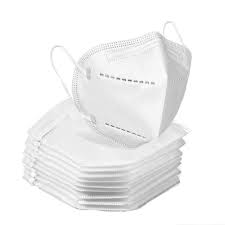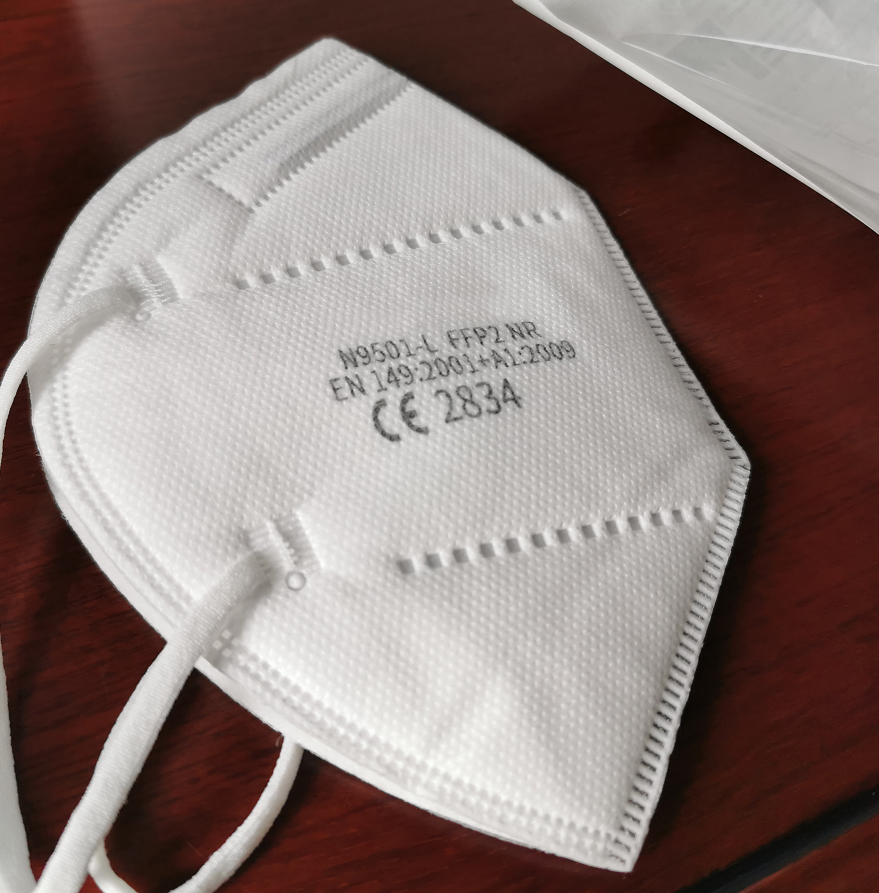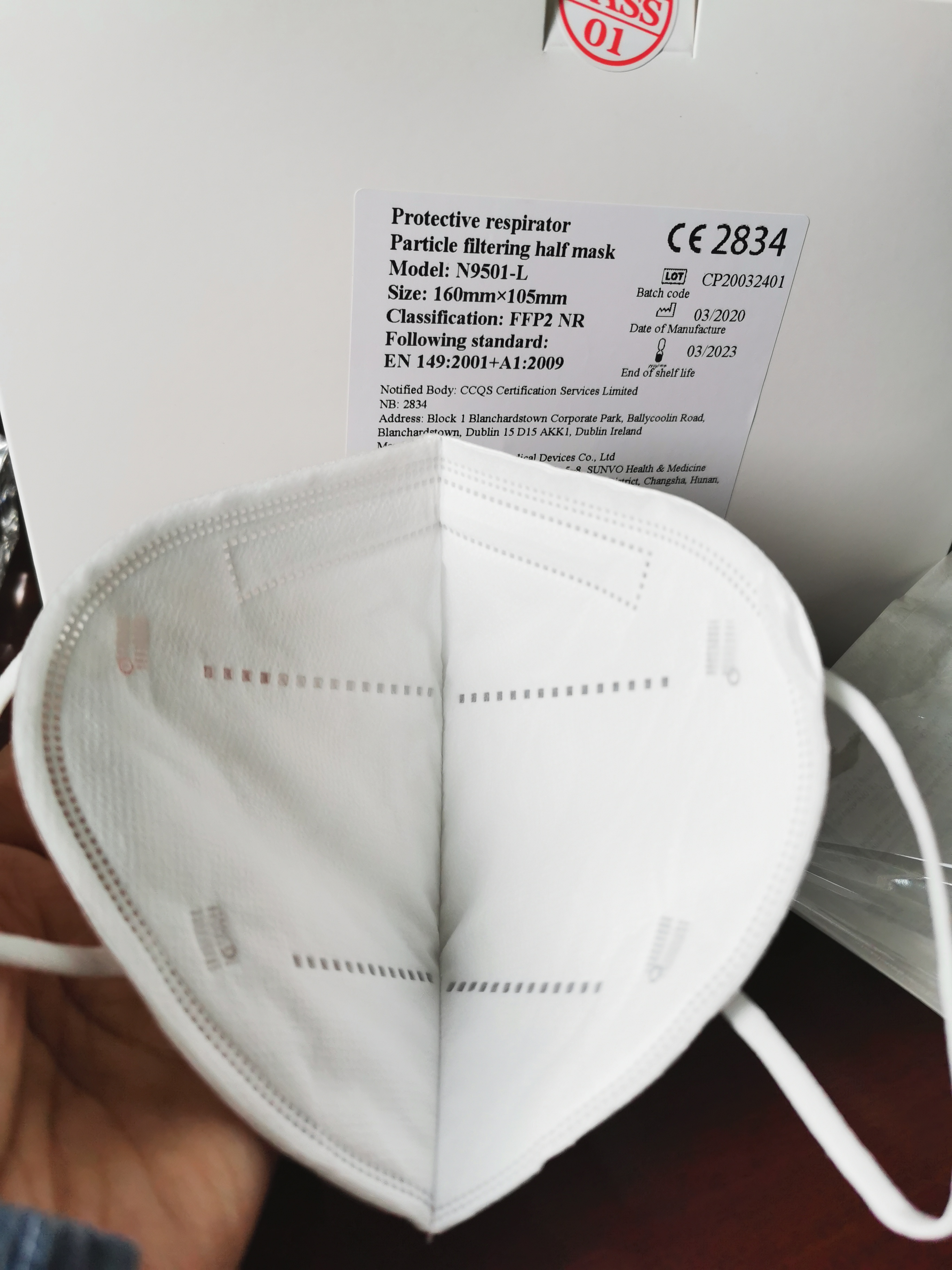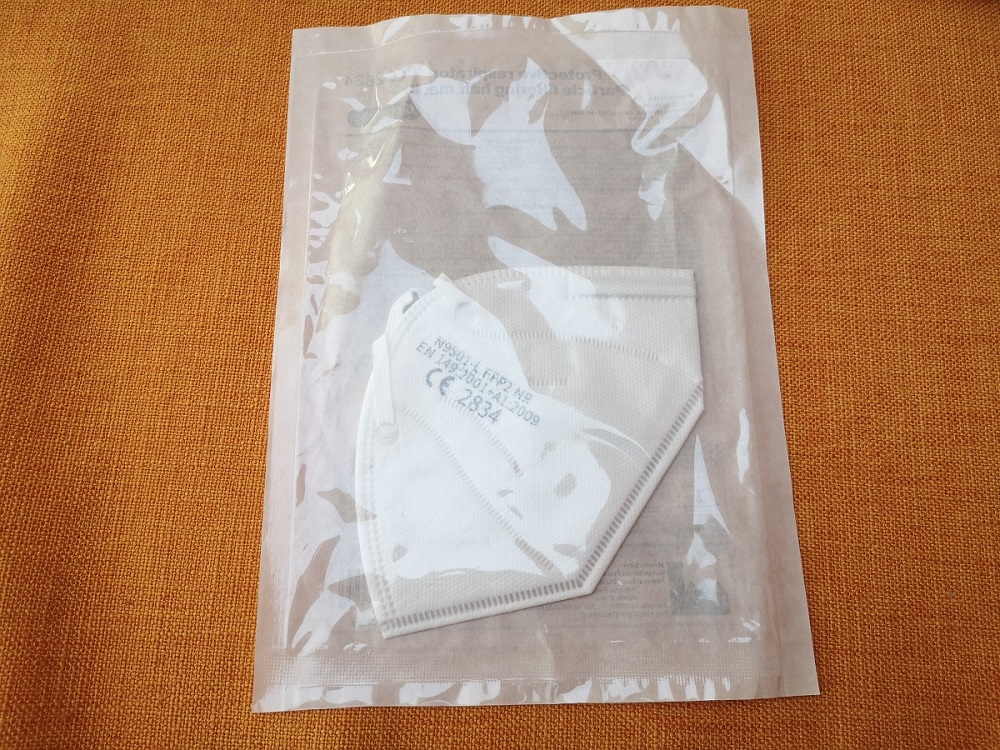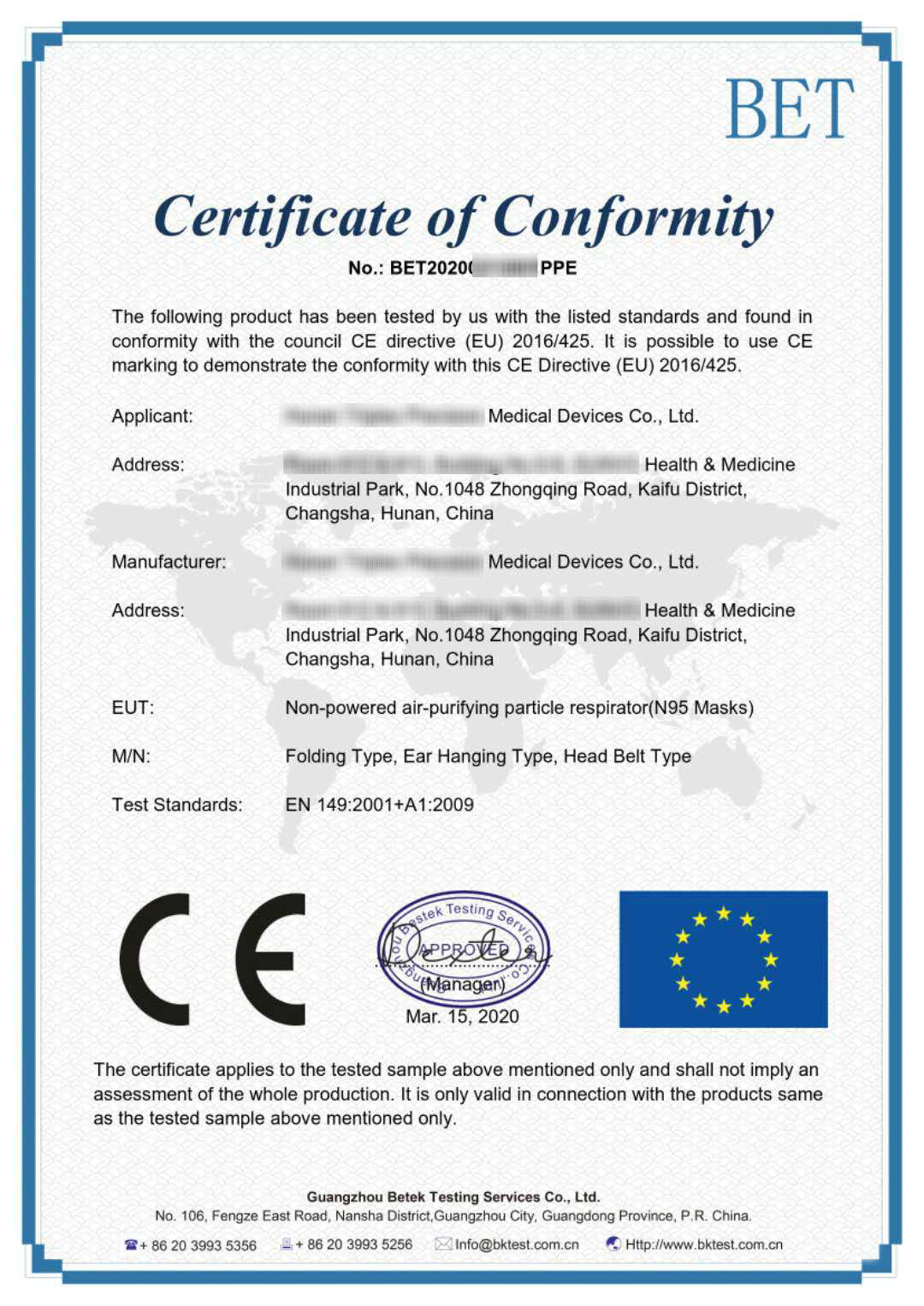PRODUCT
N95 Medical Mask
N95 Medical Mask
Medical or surgical masks may help reduce the chance of spreading airborne diseases. Many wear them during flu season to avoid infecting others or being infected. They are not designed to protect the wearer from inhaling airborne bacteria or virus particles and are less effective than respirators, such as an N95 mask.
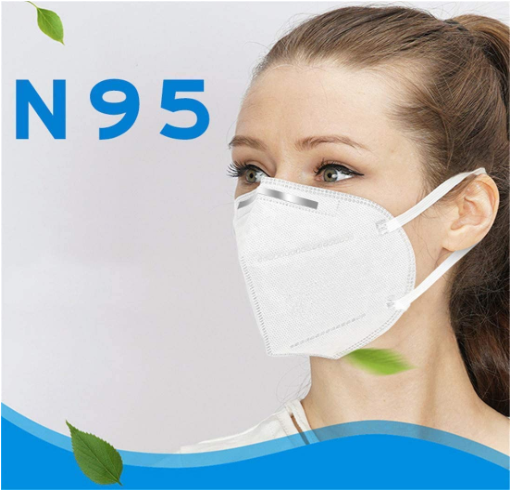
N95 Medical Mask
N95 respirators and surgical masks (face masks) are examples of personal protective equipment that are used to protect the wearer from airborne particles and from liquid contaminating the face. Centers for Disease Control and Prevention (CDC) National Institute for Occupational Safety and Health (NIOSH) and Occupational Safety and Health Administration (OSHA) also regulate N95 respirators.
It is important to recognize that the optimal way to prevent airborne transmission is to use a combination of interventions from across the hierarchy of controls, not just PPE alone.
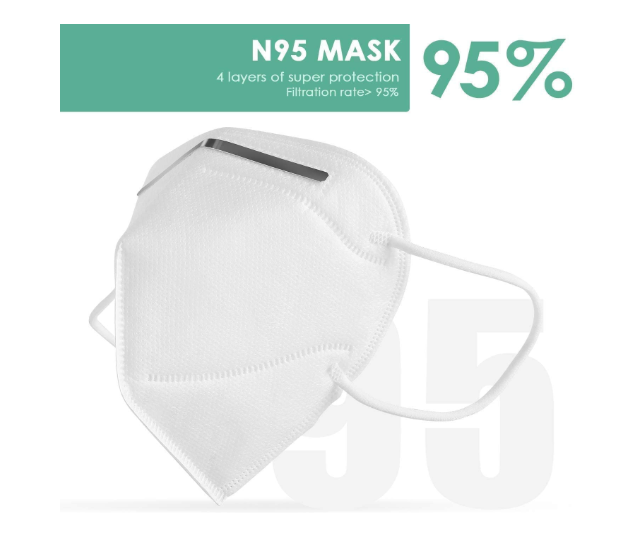
N95 Respirators
An N95 respirator is a respiratory protective device designed to achieve a very close facial fit and very efficient filtration of airborne particles.
The 'N95' designation means that when subjected to careful testing, the respirator blocks at least 95 percent of very small (0.3 micron) test particles. If properly fitted, the filtration capabilities of N95 respirators exceed those of face masks. However, even a properly fitted N95 respirator does not completely eliminate the risk of illness or death.
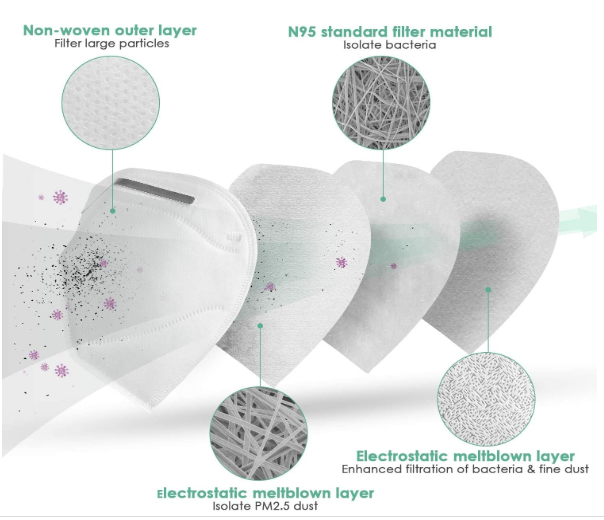
Package Details:
- 6pcs per bag
- 80bags per carton, 480pcs per carton
- Carton size: 54*40*32mm
- G.W per carton: 5kg
Certificate
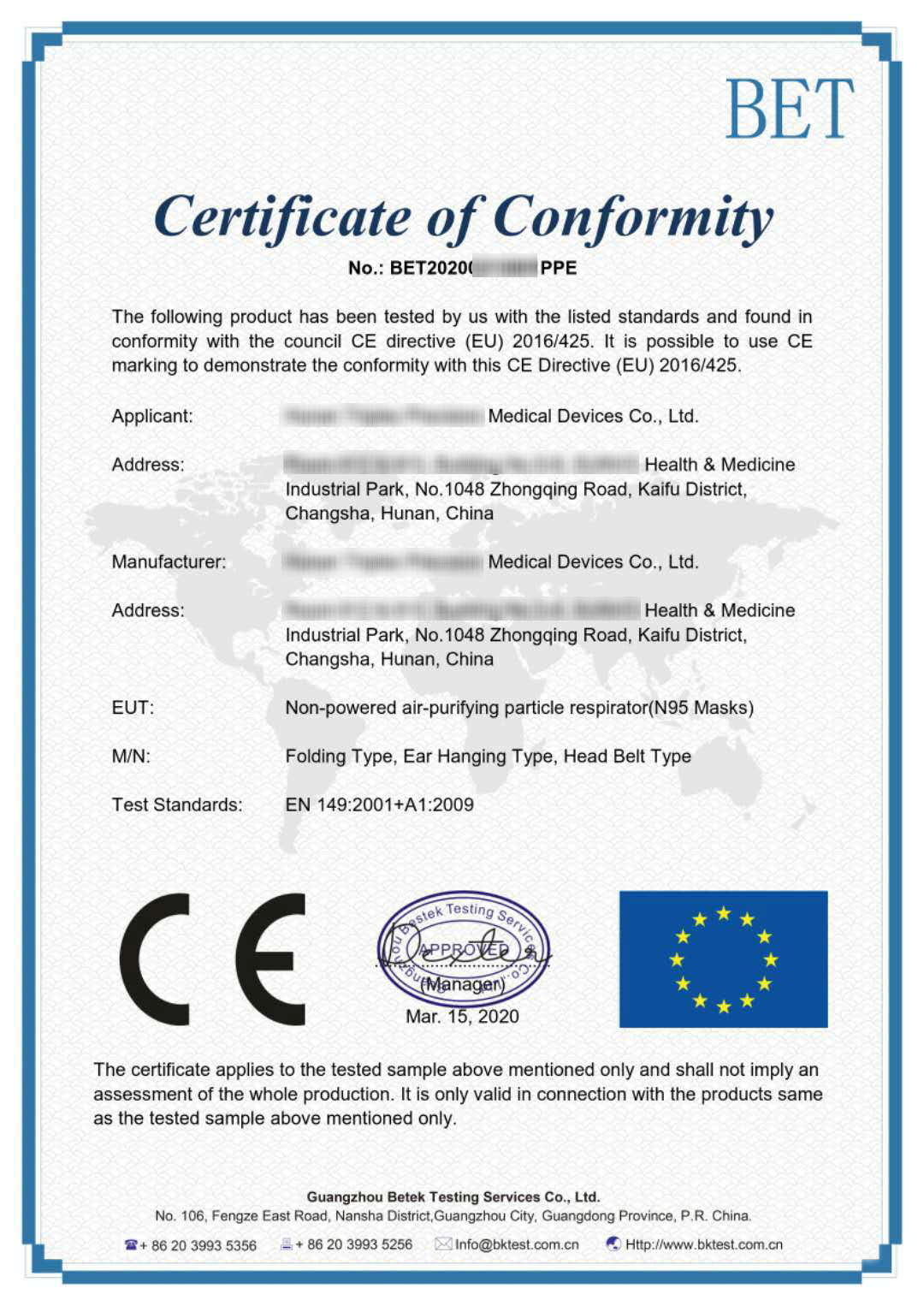
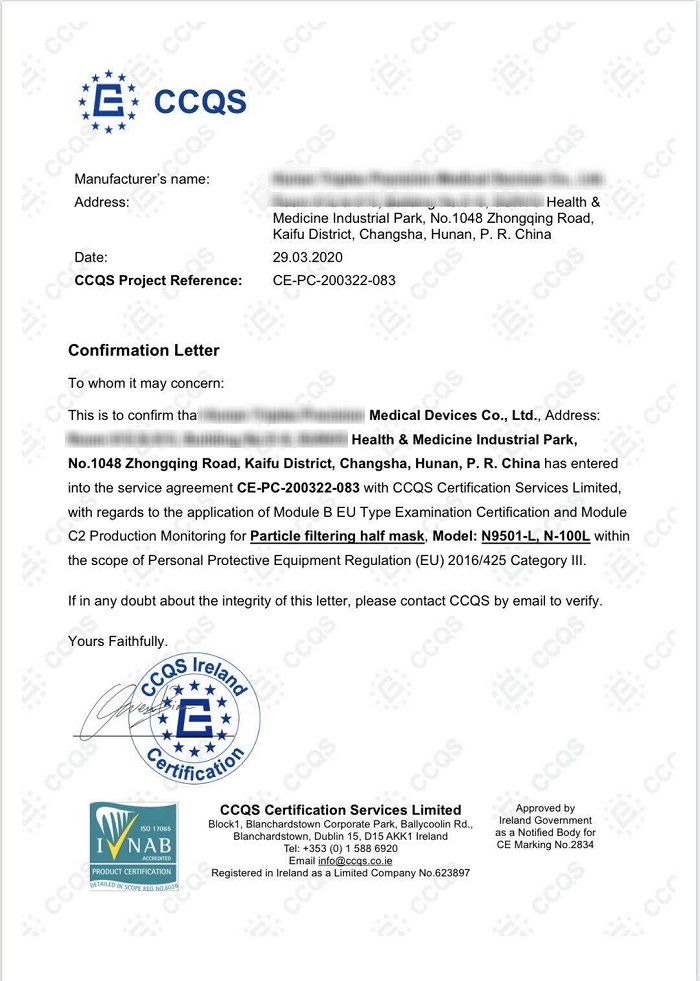
Payment & Shipment:

